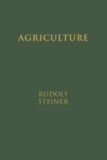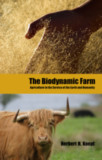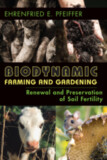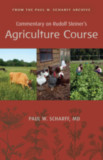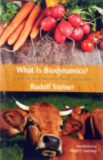- Publisher
Mercury Press - Published
22nd July 1994 - ISBN 9781957569307
- Language English
- Pages 144 pp.
Ehrenfried Pfeiffer lays out the essential practices for successfully operating a biodynamic farm, including the principles behind each technique and practice. He backs up these methods with scientific research and data, as well as his own experience as a farmer and researcher, describing what works and what doesn’t. Pfeiffer covers soil qualities, making compost, crop rotation, best planting practices, using biodynamic preparations and sprays, and much more—all with the goal of growing the highest-quality foods by using sustainable methods and working with nature and caring for the earth.
Bio-Dynamic Gardening and Farming (Vol.3) includes:
A Preliminary Report on Humus Formation in the Root Areas of Plants Under Different Soil Management
Green Manuring, Organic Fertilizer, Composting in Spring?
Compost Fertilizer on Peas (A Laboratory - Greenhouse Experiment)
Raw Material Useful for Composting
Composting and Soil Problems in Southern, Warm and Dry Climates
A General Review of the Problem of Composting (Composting Again - Small and Large)
The Bacterial Treatment
The Addition of Nitrogen Fertilizers to Compost
Seaweed
The Biological Role of the Earthworm
The Earthworm and the Toad
Mastitis, It's Causes and Treatments
Answers to Specific Questions
A Dynamic Concept of the Weather
Does Bread Nourish
Physical and Etheric Energies
Money, and Working for the Work
Ehrenfried E. Pfeiffer
Dr. Ehrenfried E. Pfeiffer (1899–1961) was born in Munich. He worked closely with Rudolf Steiner to test and document many of the effects of biodynamic practices. Pfeiffer visited the U.S. several times during the 1930s, and was awarded a doctorate for his groundbreaking theory of Sensitive Crystallization Processes as a blood test for detecting cancer. In 1940, he immigrated to the U.S., where he pioneered biodynamic agriculture and helped establish the Biodynamic Farming & Gardening Association. He died in Spring Valley, New York.



